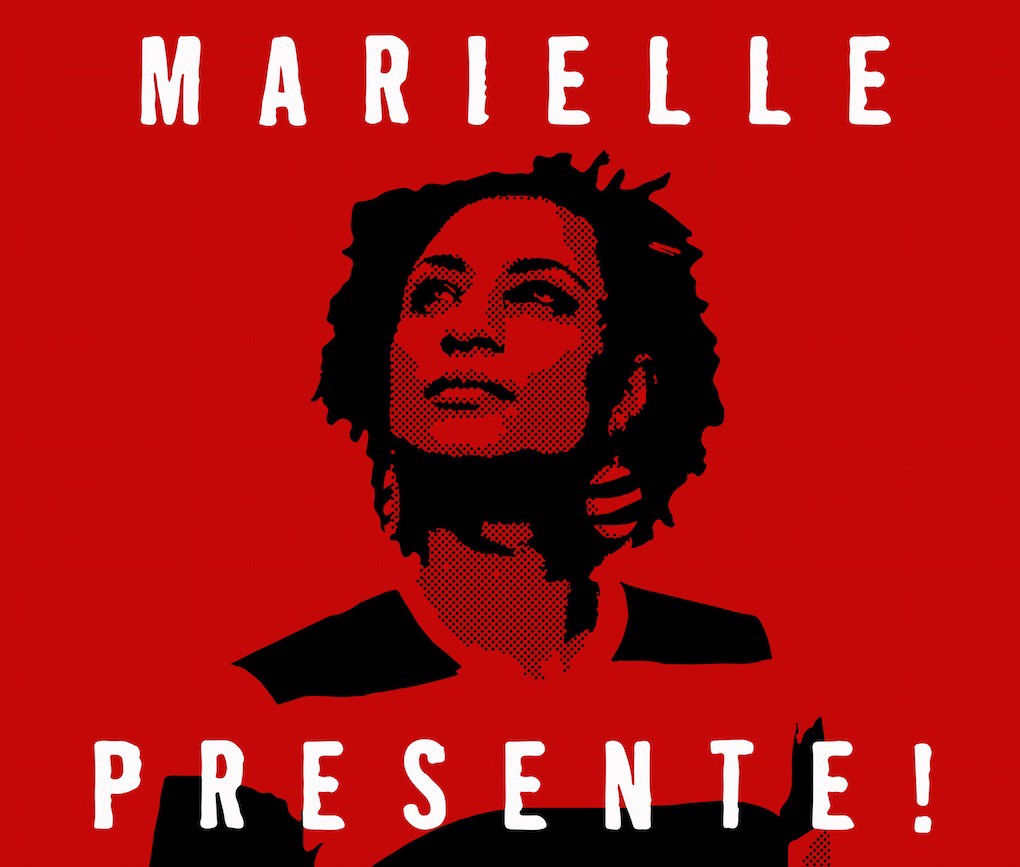When we gathered around the streets of Rio de Janeiro after the execution of black, lesbian councilor Marielle Franco, we hopelessly shouted “Marielle, Presente!” multiple times.
Marielle and her driver were shot dead on 14 March, in a targeted assassination which unleashed a wave of anger across Brazil, and provoked urgent debate on the country’s racism, violence and impunity. The human rights activist from Rio’s Maré favela complex had denounced killings blamed on police and was in charge of a city council commission monitoring the Brazilian government’s “federal intervention” which put the military in charge of policing in Rio state.
Important things happen when there is “nothing to be done, and yet doing nothing [is] not an option” (Taylor, 2). Marielle’s death formed a new alliance between women, especially black, peripheric and underprivileged. “Marielle, Presente!” is a performative utterance, as well as an ethical commitment. When we say it out loud, we are not only stating a political recognition in a ritual of togetherness – in the crowd, “I” become “we” -, but we are also coming into presence as a strategic collective “to re-imagine other ways of acting in the world” (Taylor, 18).
“As much an act as a word, ¡presente! can be understood as a war cry in the face of nullification; an act of solidarity as in showing up and standing with; a commitment to witnessing; a joyous accompaniment; present among, with, and to, walking and talking with others, an ontological and epistemic reflection on presence and subjectivity as participatory and relational, founded on mutual recognition; a showing or display before others; a militant declaration of presence; the “ethical imperative,” as Gayatri Spivak calls it, to stand up to and speak against injustice.9 ¡Presente!, in this sense, reflects our attitude in our encounter with others.”
In the “necropolitics” system of Brazil, from the favelas where young black men are constantly being killed, an always present heritage of slavery, to the crooked political council of Rio de Janeiro, formed mainly for well-known militiamen, Marielle Franco’s struggle has always and still is about death and the “politics of death”. Her absence today has been transformed into a new form of presence, of being with, in the intense temporality of now, a “particular mix of anachronism, futurity, and political emergency” (Taylor, 16). She is present in us and in the ethical commitment we perform whenever we shout “Marielle, presente!”.
Later today, Brazil might elect a fascist, racist, military, homophobic, pro-torture man as its next president. I am scared. I haven’t slept in days. I try not to be “kidnaped” by the news, but I failing. Even though there is nothing I can personally do to prevent this, there is one thing I am sure: We will resist. Like we have always resisted. For every one of us they kill, a thousand more will rise. Like Marielle Franco, we are seeds. We can’t die, only grow.
